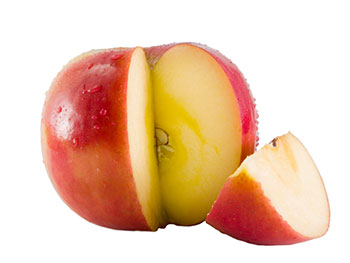More Health and Nutrition Bites
Related
Are vitamins and supplements necessary to eat healthy?
There are a lot of vitamins sold today. They come in all forms - pills, capsules, packets of pills and supplement drinks. We now have more and more good research that says they are pretty much worthless. We know that vitamins are good for you, but the research is now clear that getting your vitamins from food and not supplements is better for you.
Best way to get your vitamins? Eat them.
Certainly there are times when it's a good idea to take extra vitamins or other supplements, but these are limited to people in pretty specific populations: for example, during pregnancy, if you are a woman of childbearing age, or if you are following a vegan diet. However, in our well-fed Western culture it's pretty rare to really need to take vitamins.
Taking Vitamins to Prevent Cancer or Heart Disease
In my practice we ask our patients to bring all of the medications they are taking, including vitamins and herbs or supplements, to every office visit. This is so that if a patient is seeing more than one doctor - maybe a cardiologist in addition to visiting me, an internist - we can make sure that none of the medications they are taking will interact with each other in negative ways.
Health & Nutrition Bites
Get the latest health and diet news - along with what you can do about it - sent to your Inbox once a week. Get Dr. Gourmet's Health and Nutrition Bites sent to you via email. Sign up now!
Eat your antioxidants

People often rely on vitamin supplements to make up for their poor diets. This is especially true now that we know that some vitamins, such as antioxidants (vitamins E, C, or beta-carotene) or B vitamins, have been shown in the lab to help prevent such conditions as cancer, heart disease, and high cholesterol. But are the supplements actually having the same impact as a diet that contains more vitamins through diet alone?
In a meta-analysis of eleven studies, researchers at Johns Hopkins, the NIH, and the Instituto de Salud Carlos III, in Madrid, Spain, assessed whether taking supplements of antioxidants and B vitamins actually had any effect on the progression of atherosclerosis (heart disease) (Am J Clin Nutr 2006;84(4):880-7). The various studies had similar basic outlines: they measured the amount of plaque lining the arteries of each subject, then randomly assigned each subject to a control group (no supplementation) or a treatment group (receiving antioxidant or B-vitamin supplementation). At the end of each trial, the researchers then assessed how much the plaque formation in the arteries had increased, if at all.
The meta-analysis showed, quite simply, no evidence that supplementing one's diet with antioxidants or B vitamins had any effect on atherosclerosis. In fact, 6 fairly large trials suggested that antioxidants might actually make the progression of atherosclerosis worse, not better. Further, they seemed to reduce the positive effects of common atherosclerosis medications.
What this means for you
Scientific proof that at least in the case of heart disease, you're better off improving your diet than just taking supplements. Get more antioxidants in your diet by snacking on vegetables and fruit rather than pills.
First posted: November 8, 2006
